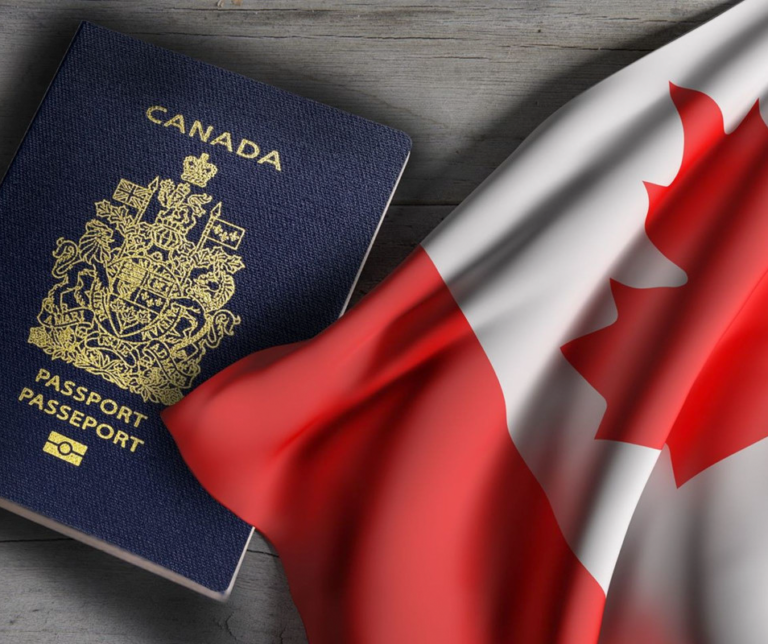
How Your French Skills Can Be Your Secret Weapon for Immigrating to Canada
The dream of moving to Canada often starts with a checklist: assessing your work experience, gathering your educational documents, and figuring out which immigration program fits your profile. In this complex process, many people search for a special advantage—an “edge” that can make their application stand out and their path smoother. For many, that secret weapon is something they already possess: the ability to speak French.
While it’s common knowledge that Canada is a bilingual country, a widespread myth is that French is only a major asset if you plan to live in the province of Quebec. The reality is that your French skills are a powerful tool for building a new life anywhere in Canada. Canada’s identity is built on its multicultural and bilingual fabric, and the government actively seeks to strengthen its French-speaking communities nationwide. This article will reveal the four key ways your French language ability can unlock unique, powerful, and often faster opportunities for your Canadian immigration plans, from temporary options like the Francophone Mobility Program to direct permanent residency.
1. Gain a Major Points Boost in Express Entry
The Express Entry system is the federal government’s primary method for managing applications for permanent residency from skilled workers. It’s a competitive, points-based system where every single point can make a difference. This is where your French skills provide a direct and significant mathematical advantage.
A Quick Refresher on Express Entry and CRS
Before we look at the bonus, let’s quickly review how the system works. When you want to immigrate as a skilled worker, you first create an online profile detailing your skills, work experience, age, education, and language abilities. If you’re eligible for one of the main programs (like the Federal Skilled Worker Program or Canadian Experience Class), you are accepted into the Express Entry pool.
Once in the pool, you are given a score based on the Comprehensive Ranking System (CRS). This score ranks you against every other candidate. Periodically, the Canadian government holds draws, inviting the highest-scoring candidates to apply for permanent residency. Your entire goal is to make your CRS score as high as possible, and French is one of the best ways to do it.
The Bonus Points: A Detailed Breakdown
The CRS system awards a large number of points for language skills, but it gives a special, additional bonus to candidates who are strong in French. This is not just a small boost; it’s a massive advantage.
Here’s how it works:
- You get 25 additional bonus points if you can prove an NCLC 7 in all four French abilities (reading, writing, listening, speaking) AND your English score is CLB 4 or lower (or you don’t have an English test).
- You get a massive 50 additional bonus points if you can prove an NCLC 7 in all four French abilities AND your English score is CLB 5 or higher.
Think of these 50 points as a powerful booster rocket for your profile, instantly lifting you above thousands of other candidates in the pool. For many people, these bonus points alone are what finally push their score high enough to receive a coveted Invitation to Apply (ITA) for permanent residency.
What an NCLC 7 in French Really Means
It’s important to know that the level required for these bonus points (NCLC 7) is higher than what’s needed for some temporary work permits. For example, the Francophone Mobility Program only requires an NCLC 5 in speaking and listening. An NCLC 7, in contrast, is considered an “adequate intermediate” proficiency. In practical terms, it means you are well beyond the basics. You can handle complex conversations, understand nuanced opinions, and write clear, structured emails or reports. It is a level that demonstrates you can comfortably function in a professional Canadian environment.
2. Unlock Exclusive Provincial Nominee Programs (PNPs)
Beyond the federal system, your French skills can open doors at the provincial level. All across Canada, provinces have their own immigration streams called Provincial Nominee Programs (PNPs), which they use to nominate candidates who meet their specific economic needs. A provincial nomination is incredibly valuable—if you are nominated through an Express Entry-linked stream, you get 600 extra CRS points, which all but guarantees you an invitation for PR. Several provinces are actively searching for French-speaking immigrants.
Spotlight on Ontario’s French-Speaking Skilled Worker Stream
Ontario, Canada’s economic powerhouse, has one of the most popular PNPs for French speakers. The French-Speaking Skilled Worker (FSSW) stream is linked to the Express Entry system. To be considered, you must first have an active Express Entry profile and demonstrate high proficiency in both French (NCLC 7) and English (CLB 6). The province regularly searches the pool for candidates who meet their criteria and sends them a “Notification of Interest” (NOI), which is an invitation to apply for a provincial nomination. This stream is ideal for bilingual professionals aiming to settle in major economic hubs like Toronto or the bilingual capital city of Ottawa.
Spotlight on New Brunswick’s Strategic Initiative Stream
For those looking for a different experience, New Brunswick offers a fantastic alternative. As Canada’s only officially bilingual province, it has a deep commitment to Francophone immigration. Their Strategic Initiative Stream is designed specifically for French speakers and has a key advantage: it is not always linked to Express Entry. This means it’s a viable option even if your CRS score isn’t very high. The language requirement is also more accessible, requiring only an NCLC 5. To qualify, you typically need to show a genuine interest in the province, often by making an “exploratory visit” to research communities and job opportunities. For many applicants, gaining initial work experience in a province through a permit like the Francophone Mobility Program can be a strategic first step before applying to a PNP stream.
3. Access a Special LMIA-Exempt Work Permit
Perhaps the most direct and immediate advantage for French speakers is the ability to secure a work permit with much less difficulty. This pathway allows you to start working and living in Canada much faster than many other routes.
The LMIA Hurdle: Why It’s a Problem for Employers
Normally, before a Canadian company can hire a foreign worker, they must first get a document called a Labour Market Impact Assessment (LMIA). This is a long, complicated, and expensive process. The employer must advertise the job for weeks across Canada and prove to the government that they could not find a single qualified Canadian citizen or permanent resident to fill the position. The application fee alone is $1,000, and the entire process can take many months. This LMIA requirement is often the biggest barrier for international workers hoping to get a job offer.
The Francophone Mobility Program: Your Direct Path to a Work Permit
This is where your French skills become a superpower. If you are a French speaker with a job offer outside Quebec, you can use the Francophone Mobility Program to help your employer bypass the entire LMIA process.
This is made possible through a special stream designed to bring French-speaking talent to all corners of Canada. It allows employers to hire you directly and quickly, making you an incredibly attractive candidate. If you want to learn the full details of how this LMIA-exempt permit works, you can find a comprehensive guide on the Francophone Mobility Program. This advantage not only speeds up your arrival in Canada but also provides you with the Canadian work experience that is highly valued if you later decide to apply for permanent residency.
4. Integrate Faster into Thriving Communities
The benefits of speaking French don’t stop once your application is approved. For newcomers arriving through streams like the Francophone Mobility Program, your language skills are a key to a smoother, richer, and more connected life once you arrive in Canada.
Life Beyond Work: Accessing Services in French
On a practical, day-to-day level, being able to communicate in French makes life much easier. The Canadian federal government offers services in both official languages across the country. This means you can often access government services (like Service Canada), file your taxes, and get information in French. In many regions, you can also find healthcare providers, banks, and community organizations that offer services in French, which can be a huge comfort when you are new to the country.
Spotlight on Francophone Communities
While Canada is a majority English-speaking country outside of Quebec, it is home to over a million Francophones living in vibrant and welcoming communities from coast to coast.
- Ottawa, Ontario: As the nation’s capital, Ottawa is a truly bilingual city where you can live, work, and socialize comfortably in French. It has a rich Franco-Ontarian culture with French-language universities, theatres, hospitals, and festivals.
- Winnipeg, Manitoba: The historic Saint-Boniface district in Winnipeg is the largest Francophone community in Western Canada. It boasts a unique culture with its own music scene, excellent French schools, and a strong, tight-knit sense of community.
- Moncton, New Brunswick: As a major hub in Canada’s only officially bilingual province, Moncton is a city where bilingualism is the norm. It’s a growing economic centre with a vibrant Acadian culture, offering a truly immersive French-language experience.
Education for Your Children
For families, one of the biggest draws is Canada’s network of publicly funded French-language school boards. These high-quality schools exist in almost every province and allow your children to receive their entire education in French, helping them maintain their language and cultural identity while integrating into Canadian life.
In the competitive world of Canadian immigration, having a clear advantage matters. Your ability to speak French is far more than just a communication skill—it is a recognized and rewarded asset that can significantly smooth your path to a new life in Canada. It can boost your Express Entry score, open doors to exclusive programs, help you get a work permit faster, and allow you to connect deeply with one of the many welcoming Francophone communities across the country. Your French skills are more than just a line on your resume; they are a key that can open multiple doors to your Canadian dream.



